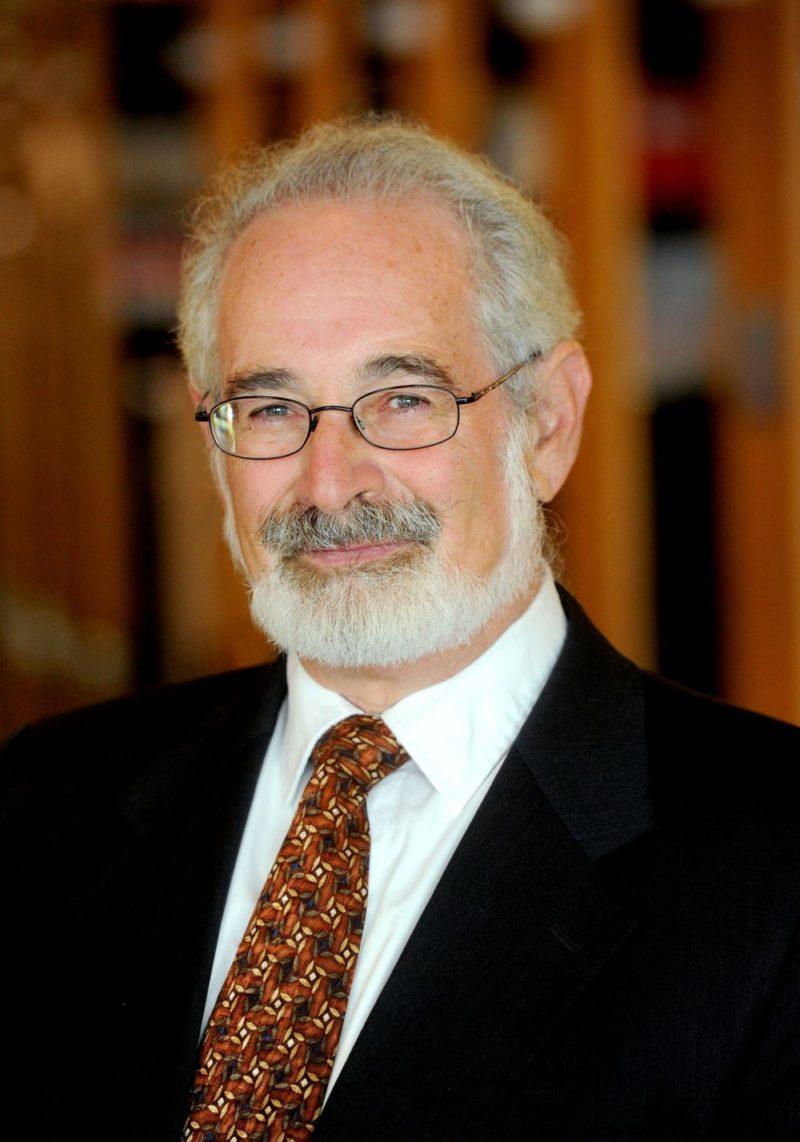E-Cigarette Expert Warns of Health Issues, Advocates Flavor Ban
| E-cigarettes are likely bad for human health and state and local governments should help prevent the spread of their use, especially among young people, by adopting bans on flavored nicotine products.
That was the takeaway message from Stanton Glantz, Ph.D., a tobacco control researcher and the featured speaker Feb. 13 at the UAMS Winthrop P. Rockefeller Cancer Institute Cancer Prevention and Population Sciences Program Lecture Series.
Glantz, the Truth Initiative Distinguished Professor of Tobacco Control at the University of California, San Francisco, conducts a wide range of research from the health effects of e-cigarettes and secondhand smoke to the efficacy of tobacco control policies, as well as cannabis policy.
Glantz debunked several key myths about e-cigarettes: the idea that e-cigarettes are safer, help smokers quit and don’t appeal to kids.
“We don’t know how dangerous e-cigarettes are yet, but in terms of heart disease and lung disease, they are as bad as cigarettes,” Glantz said. “It’s too early to know for sure for cancer, but the research is starting to appear that does link e-cigarettes to cancer.”
The idea that e-cigarettes help smokers quit smoking is ultimately not supported by the data, Glantz said.
“E-cigarettes are actually keeping people smoking,” said Glantz.
Glantz specifically talked about the e-cigarette maker Juul, which is under investigation in 39 states, including Arkansas, in part because of allegations that it targeted young people and made misleading claims.
Glantz said Juul’s products don’t actually look like cigarettes and that many of the allegations against them center around deceptive marketing tactics directed at young people.
Glantz said all flavored products should be banned.
“We must educate the public about these products,” Glantz said. “E-cigarettes must be included in comprehensive smoke-free policies, and we must empower non-users.”
None of the current e-cigarette sales in the United States are legal because no e-cigarettes are authorized or regulated by the U.S. Food and Drug Administration. Glantz noted that recently the FDA has started limited enforcement of flavors, but that came with some loopholes.
“The flavor ban only involves the e-cigarette cartridge systems,” Glantz said. “It exempts menthol, refillable and all disposable e-cigarette products.”
Glantz offered advice for states about what they can do from a policy perspective.
“The best thing you can do is pass local and state laws banning the sale of flavored e-cigarettes,” Glantz said, noting that San Francisco has led the charge on this front, banning flavored tobacco and the sale of e-cigarettes in the city.
Glantz is also the director of the Center for Tobacco Control Research and Education, the co-leader of the Helen Diller Family Comprehensive Cancer Center Tobacco Control Program and a member of the Cardiovascular Research Institute and Philip R. Lee Institute for Health Policy Studies at the University of California, San Francisco.
